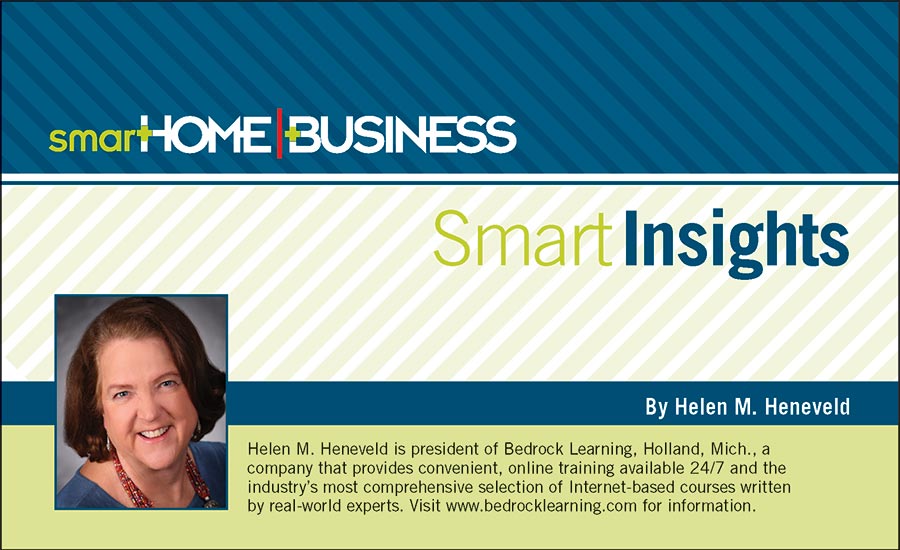Smart Homes
The word smart has been partnered with high-tech for many decades. I remember Inspector Gadget and his handy Swiss Army-like devices. Or what about The Jetsons and their time-saving contraptions to help them get dressed? And the old TV show, Get Smart, with a wireless phone in the bottom of a shoe? And of course, the smart home. Today, all of these things are happening — revolving closets select clothes based on virtual viewing in a mirror; compact, powerful, mobile computers are ubiquitous; and control of systems in the home is one of the fastest growing business opportunities.
Over the years the smart home has had numerous names: home automation, residential integration, connected home, smart living, and connected living. In a similar manner, the smart city is also referred to as the wired city, intelligent city, knowledge-based city, MESH city, teletopia, digital city, and cyberville. The one term that sticks and most people understand is “smart,” whether it be in the home or in the city.
What is a smart city? The definition is still up for grabs and being refined, but it refers to an ecosystem that can lower costs, improve sustainability, streamline trash collection, decrease traffic congestion and even improve air quality, all from using the capabilities of the Internet of Things (IoT). Key components of a smart city include: an organized infrastructure, sensors for information-gathering, use of energy-efficient products, and data analysis resulting in automatic actions and communication by connecting and sharing information with citizens. The end game is to deliver optimized efficiency of city operations and services, resulting in reduced costs and resource consumption, along with improved quality of life in the urban environment.
The benefits of a smart city are diverse. For example, Chicago is replacing a quarter of a million street lights with wireless-controlled LED lighting to reduce energy consumption by 50 percent to 75 percent, lower maintenance costs with remote monitoring for proactive upkeep and faster repairs; and increase public safety.
Consider getting help in finding the closest parking spot; this will help you save time, gas, carbon dioxide emissions, and improve traffic flow. Or cleaning up the city with smart garbage cans that automatically notify the waste management company to schedule a pickup, rather than using a pre-planned schedule.
What does the emergence of smart cities have to do with you and your business? I don’t have the crystal ball to predict the impact, but I do believe it is something to stay informed about. I will be checking it out, along with 160,000 of my closest friends at the Consumer Electronics Show (CES), which will be held January 2019 in Las Vegas; it’s one of the themes of the upcoming show. Increased awareness of smart cities will drive interest and demand for smart home services. By now, your business is probably offering and servicing some smart home technology and products. In the future, these may interface with the smart city, and your knowledge will be needed to make this happen.
With a smart city the whole is greater than its parts. This holds true for the smart home, too. In today’s world of smart homes, IoT and smart cities, the network, wireless connectivity and data rule. As Parks Associates stated, “Smart cities are one of the most promising 5G use cases — although most cities pursuing smart solutions are currently in the testing phase, massive IoT deployments are already beginning to roll out. Top smart city applications include smart street lighting, utility metering, traffic management, and parking management. Cities that roll out this technology expect to see cost savings over time with regards to reduced energy expenditure and greater operational efficiencies.”
Let’s continue to rethink our businesses, our way of life, and how to conserve resources. Staying abreast of information on future trends and technologies that may potentially disrupt our lives and the world we live in will help us make better plans. Never stop learning, and when a headline mentions smart cities give it a read and ponder how it might impact your life and business.




